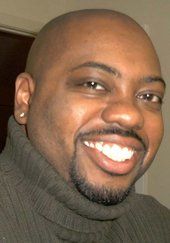The Solopreneur Life | Passive Income | Home Business
Solopreneur Health: Make the Most of Your Sleep
- By Jen Waak
- •
- 19 Aug, 2010
T his was written by Jen Waak, who pens a monthly

Last month I talked about taking time for yourself, but oftentimes it’s easier said than done. I get that. But sleep, now THAT is something we do every night, and it’s yet another opportunity to recharge.
The saying, “I’ll sleep when I’m dead,” while popular, isn’t terribly practical. Not only are you likely to be dead considerably faster, you will also most likely be fatter and more stupid than those of us who take the time to get our sleep.
It’s true.
Here is what an ongoing lack of sleep leads buys you:
• Increased likelihood of a car accident (100,000 car accidents and 1,500 deaths per year)
• Decreased job performance. Not only are you less able to focus, but you are missing out on the downtime your brain NEEDS to process the day’s information.
• Significantly higher rates of obesity
• Depression and irritability
Other than the possibly the obesity, none of that is probably surprising to you. We’ve all been there (and you may even be a bit sleep-deprived and cranky reading this right now), so let me jump right in to what you can do to make the most of the few precious hours of sleep-eye you DO get each night.
1. Unplug at least 30 minutes prior to lights out. That means laptops, smartphones, TVs—anything backlit. The backlighting confuses our circadian rhythms and the increased stimulus keeps our brains spinning. So, unplug and use this time to open a book or catch up on that backlog of magazines.
2. Relax. While lying in bed, check your body tension. Is your jaw tight? Are your eye muscles tight? What about your back? Release those tense areas and notice how much better you feel and more able to drift off.
3. Breathe. Along with relaxing your body, breathing is another sure-fire way to release the stress of the day and fall deeply asleep. Take long, slow breaths—being sure to fill your entire ribcage.
I’m not going to tell you how much sleep you should get, because that is individual, but I will tell you that studies show that 7-9 hours per night is what is ideal for the vast majority of the population. Personally, I tend to function better on closer to 9 hours of sleep, and I know plenty of uber-successful people who need the same. Needing sleep is NOT a sign of weakness. But, find what works for you—and remember, “surviving on” and “works for me” are NOT the same thing.
What are your tricks for falling asleep quickly?
Free Newsletter "Get the Latest Solopreneur Tips and Advice"










